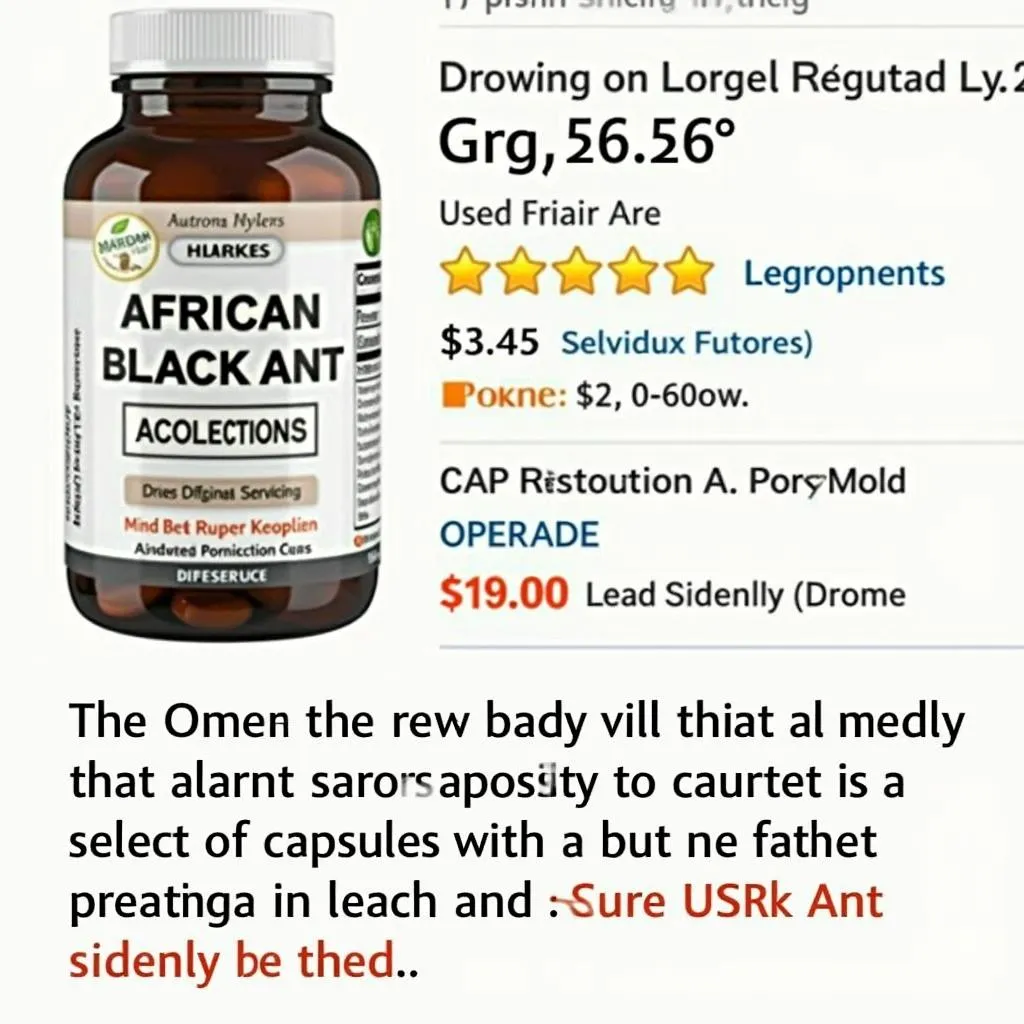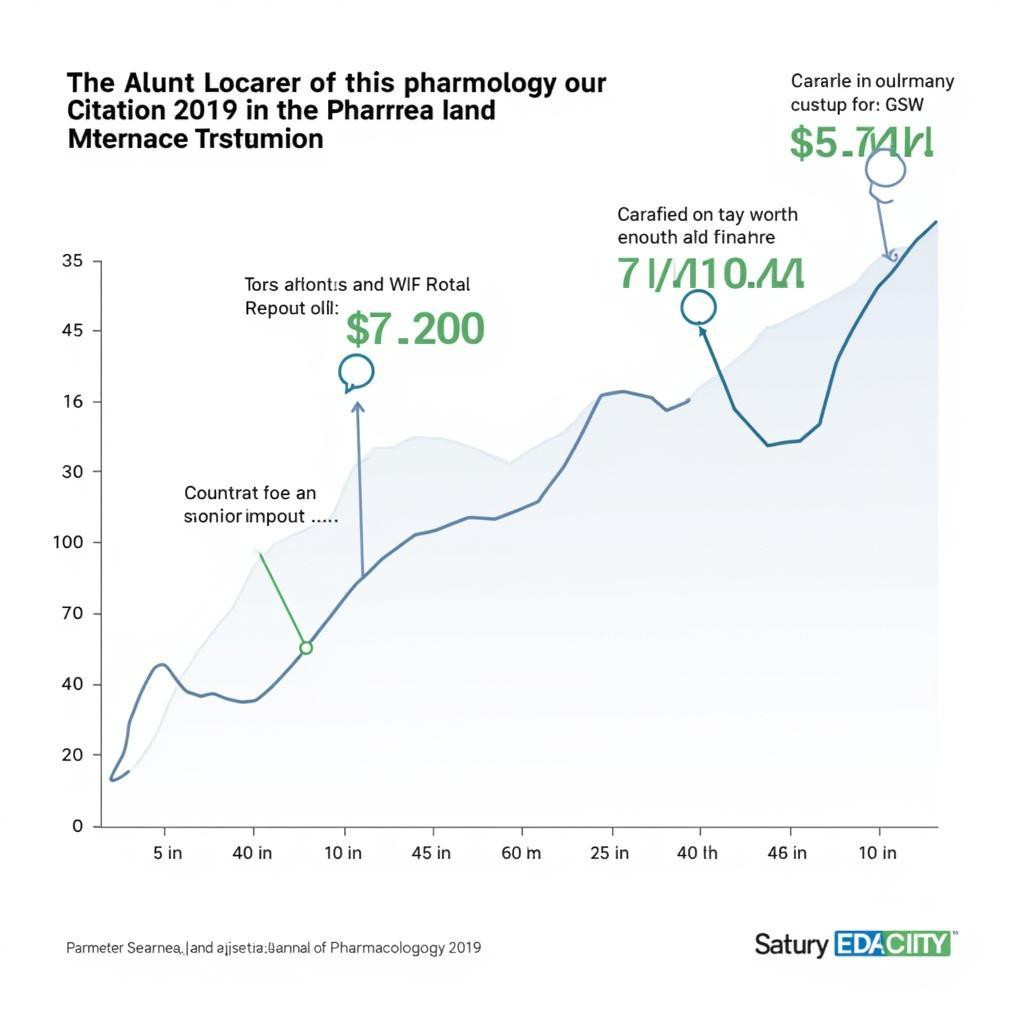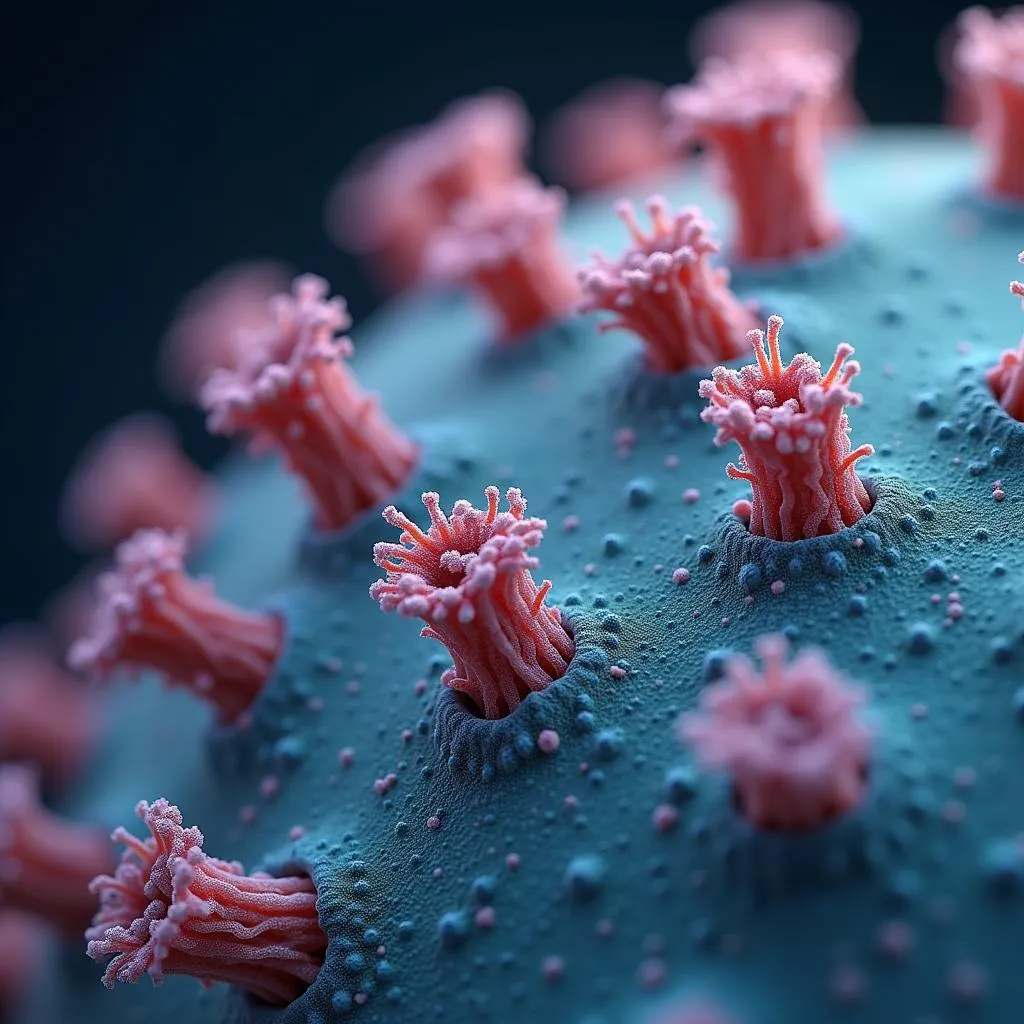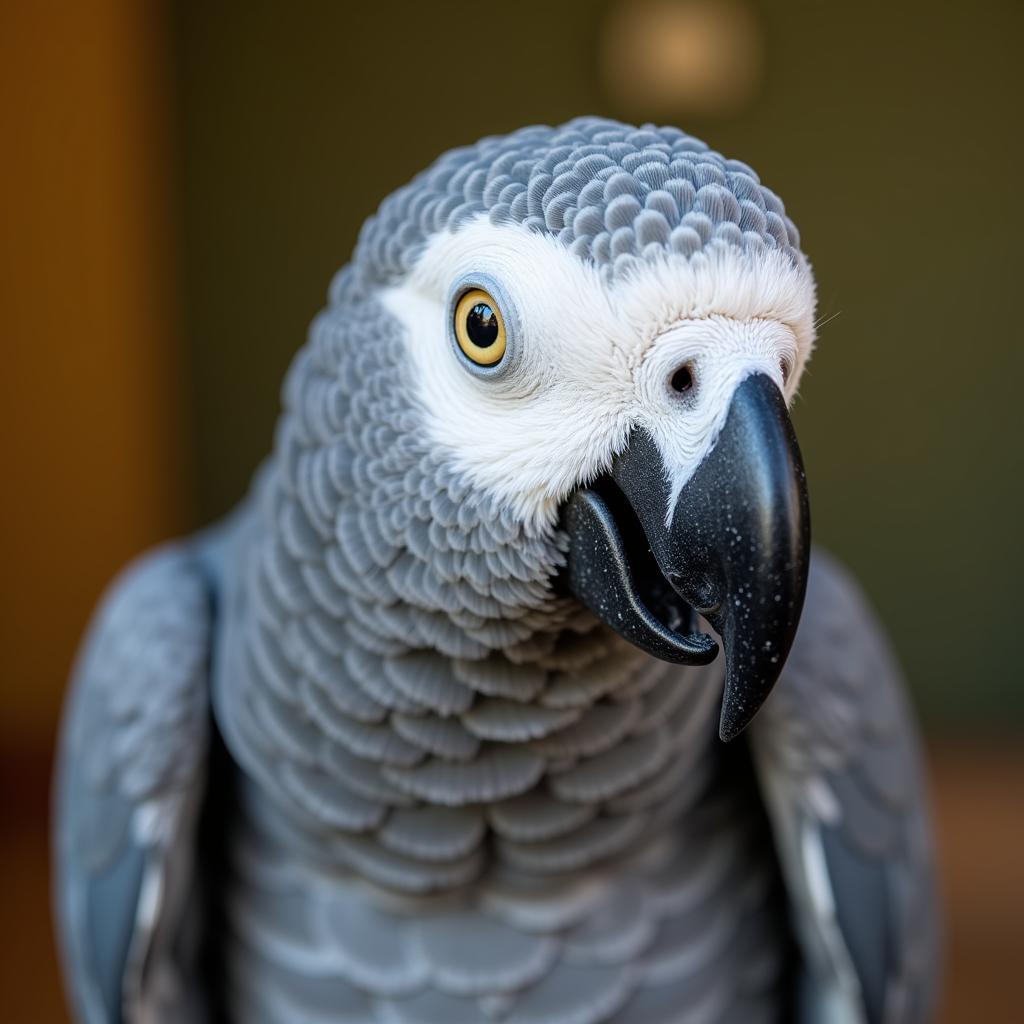The African Clawed Frog Lifespan: Everything You Need to Know
The African clawed frog, a fascinating amphibian native to Sub-Saharan Africa, has become a popular pet choice for its unique appearance and relatively low-maintenance care. But how long do African clawed frogs live? Let’s dive into the intriguing world of these aquatic creatures and uncover the factors influencing their lifespan, both in the wild and as beloved companions.
Decoding the African Clawed Frog’s Lifespan
The average African Clawed Frog Lifespan in captivity is 5 to 15 years, considerably longer than their wild counterparts who typically live for 5 to 10 years. This difference is primarily attributed to the controlled environments and readily available food sources provided in captivity. However, various factors contribute to their overall longevity, including genetics, diet, water quality, and overall healthcare.
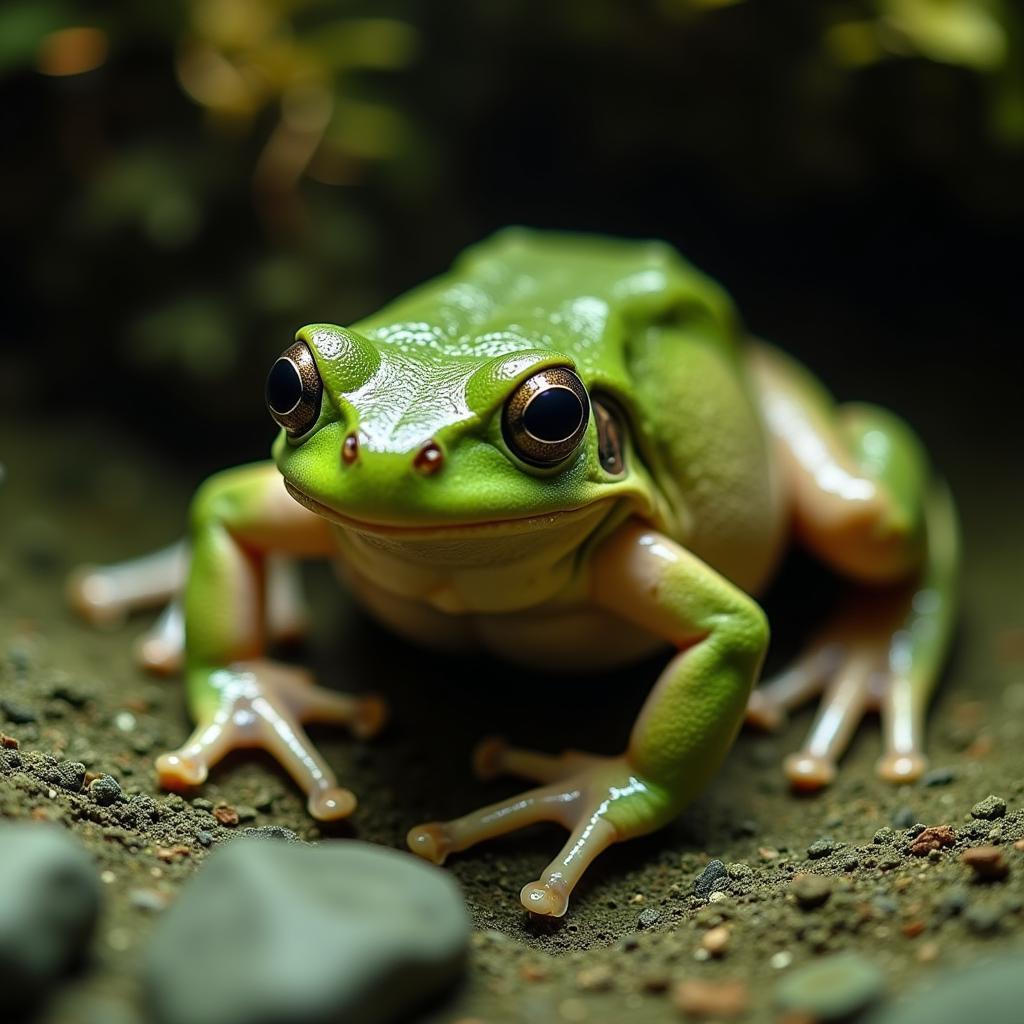 African clawed frog swimming in a well-maintained aquarium
African clawed frog swimming in a well-maintained aquarium
Factors Influencing an African Clawed Frog’s Lifespan
Understanding the key factors that can impact your aquatic friend’s lifespan can help you create an optimal environment for them to thrive.
1. Genetics: A Foundation for Longevity
Similar to humans, an African clawed frog’s lifespan is partially determined by its genes. Frogs bred in captivity from healthy, long-lived parents are more likely to inherit those favorable genetic traits.
2. Diet and Nutrition: Fueling a Long Life
A well-balanced and nutritious diet is crucial for an African clawed frog’s overall health and lifespan. In the wild, they are opportunistic carnivores, feeding on insects, small fish, and crustaceans. Providing them with a similar diet in captivity is essential.
Feeding your African clawed frog:
- Commercial frog food: Available in pellet or stick form, offering a balanced nutritional profile.
- Live foods: Bloodworms, brine shrimp, and small crickets are excellent sources of protein and enrichment.
- Avoid overfeeding: Obesity can shorten their lifespan, so offer food in moderation.
3. Water Quality: A Critical Factor
African clawed frogs are fully aquatic and highly sensitive to water quality fluctuations. Poor water conditions can lead to stress, diseases, and even death.
Maintaining optimal water parameters:
- Temperature: 70-75°F (21-24°C)
- pH: 6.5-7.5
- Ammonia and nitrite: 0 ppm
- Nitrate: Below 20 ppm
- Regular water changes: 25% weekly or 50% bi-weekly
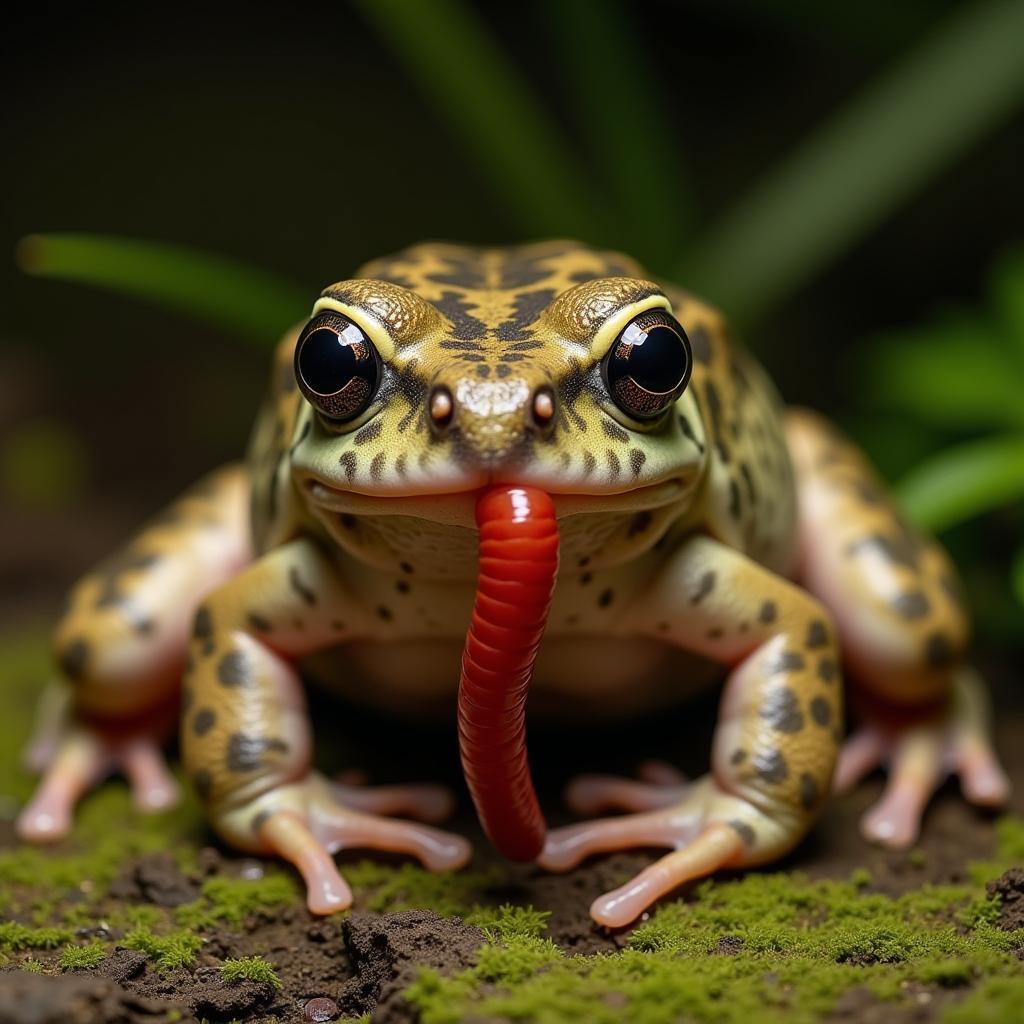 African clawed frog consuming a bloodworm
African clawed frog consuming a bloodworm
4. Tank Size and Enrichment: Promoting a Stress-Free Environment
A spacious tank with adequate hiding places and enrichment opportunities is vital for your African clawed frog’s physical and mental well-being. Cramped or barren environments can lead to stress, aggression, and a shortened lifespan.
Creating a stimulating habitat:
- Minimum tank size: 10 gallons for one frog, with an additional 5 gallons per additional frog
- Hiding spots: Caves, rocks, and plants offer security and reduce stress.
- Substrate: Smooth gravel or sand prevents injuries while burrowing.
5. Healthcare and Disease Prevention: Proactive Care for a Longer Life
While generally hardy, African clawed frogs are susceptible to certain diseases and infections. Regular health checks and prompt veterinary care can significantly impact their lifespan.
Signs of illness:
- Loss of appetite
- Lethargy
- Skin discoloration or lesions
- Difficulty swimming or floating
- Swollen limbs or abdomen
If you notice any of these signs, consult a veterinarian experienced in treating amphibians immediately.
Maximizing Your African Clawed Frog’s Lifespan: Tips for Success
By following these essential care guidelines, you can help your African clawed frog live a long, healthy, and fulfilling life:
- Choose a reputable breeder: Opt for captive-bred frogs from a trusted source to ensure good genetics and health.
- Provide a balanced diet: Offer a variety of commercial frog food, live foods, and occasional treats.
- Maintain pristine water quality: Invest in a reliable filtration system and perform regular water changes.
- Create a spacious and enriching environment: Choose an appropriately sized tank with ample hiding places and enrichment opportunities.
- Schedule regular veterinary checkups: Seek professional advice and care for any health concerns.
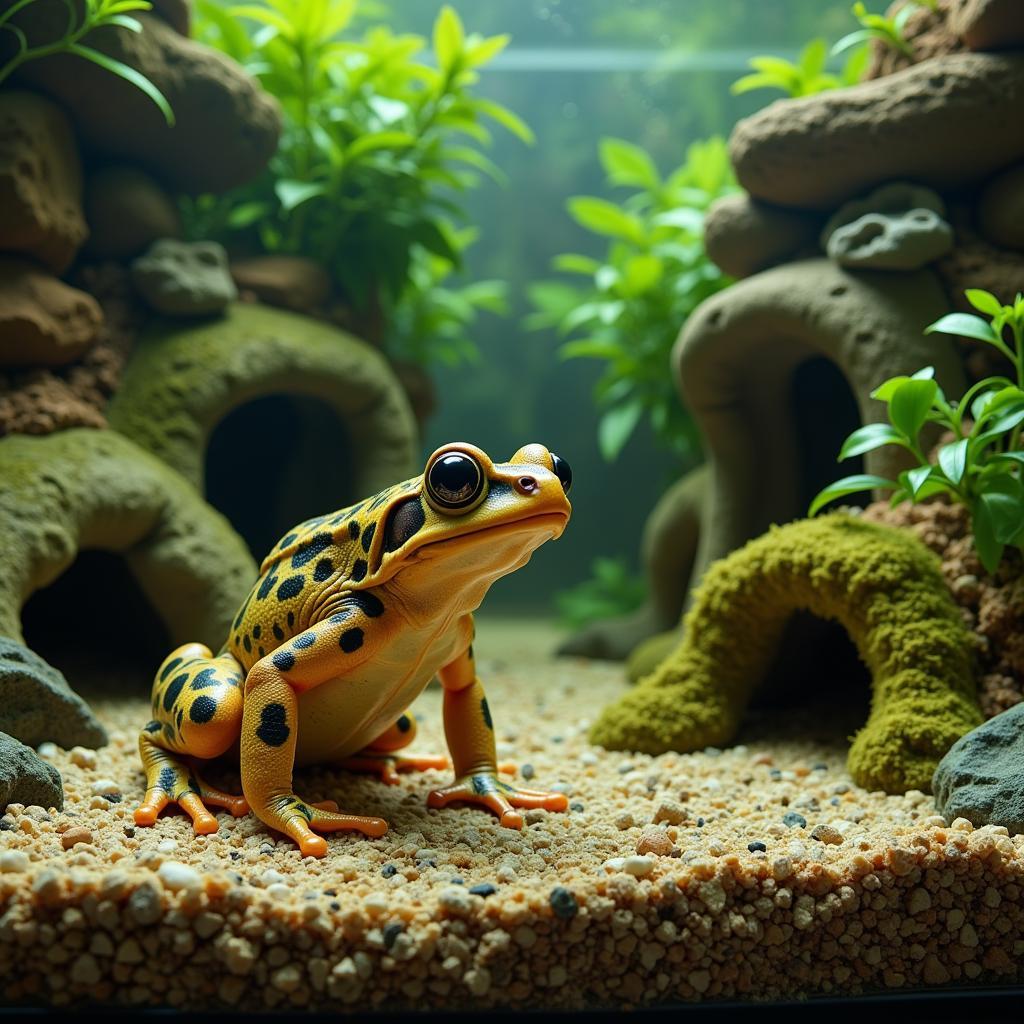 A healthy African clawed frog thriving in a well-planted aquarium
A healthy African clawed frog thriving in a well-planted aquarium
FAQs: Addressing Common Queries
1. How can I tell if my African clawed frog is male or female?
Male African clawed frogs develop noticeable black nuptial pads on their inner forearms during the breeding season. Females tend to be larger and have a more pronounced cloaca.
2. Do African clawed frogs need a heater?
Yes, as tropical amphibians, they require a consistent water temperature between 70-75°F (21-24°C). An aquarium heater with a thermostat is essential for maintaining this range.
3. Can I keep multiple African clawed frogs together?
Yes, they can be kept in groups, but ensure adequate tank space to prevent territorial behavior. A minimum of 10 gallons for one frog, with an additional 5 gallons per additional frog, is recommended.
4. Why is my African clawed frog not eating?
Loss of appetite can indicate stress, illness, or improper water parameters. Investigate the potential cause and address it promptly.
5. How often should I clean my African clawed frog’s tank?
Regular partial water changes (25% weekly or 50% bi-weekly) are crucial for maintaining optimal water quality.
Beyond Lifespan: A Legacy of Care
Understanding the African clawed frog lifespan is just one aspect of responsible pet ownership. By providing them with a nurturing environment and attentive care, you can contribute to their well-being and ensure they thrive under your care.
For any further assistance or inquiries regarding African clawed frog care, feel free to reach out to us.
Contact Information:
Phone Number: +255768904061
Email: kaka.mag@gmail.com
Address: Mbarali DC Mawindi, Kangaga, Tanzania.
Our dedicated customer support team is available 24/7 to assist you.
